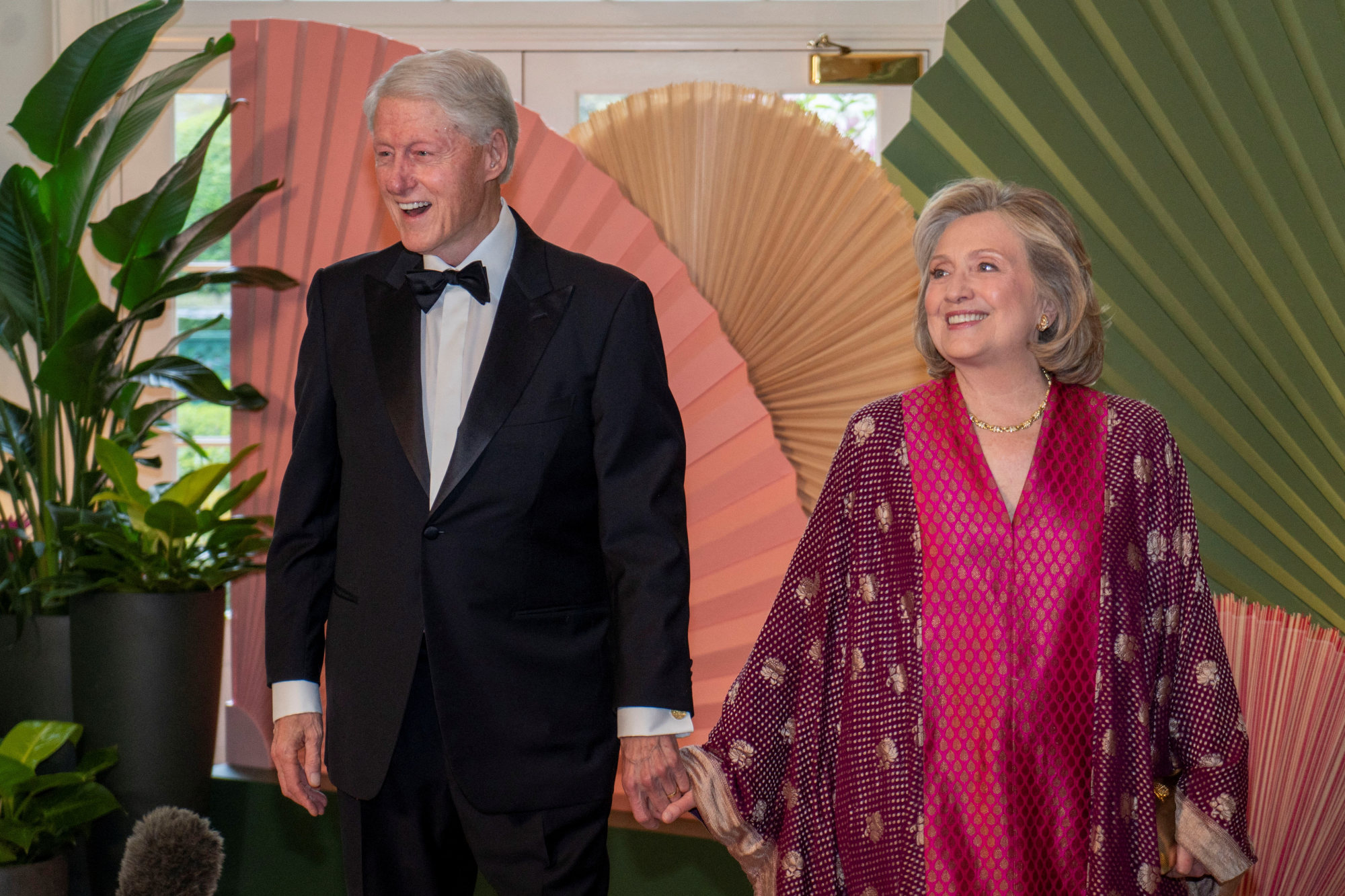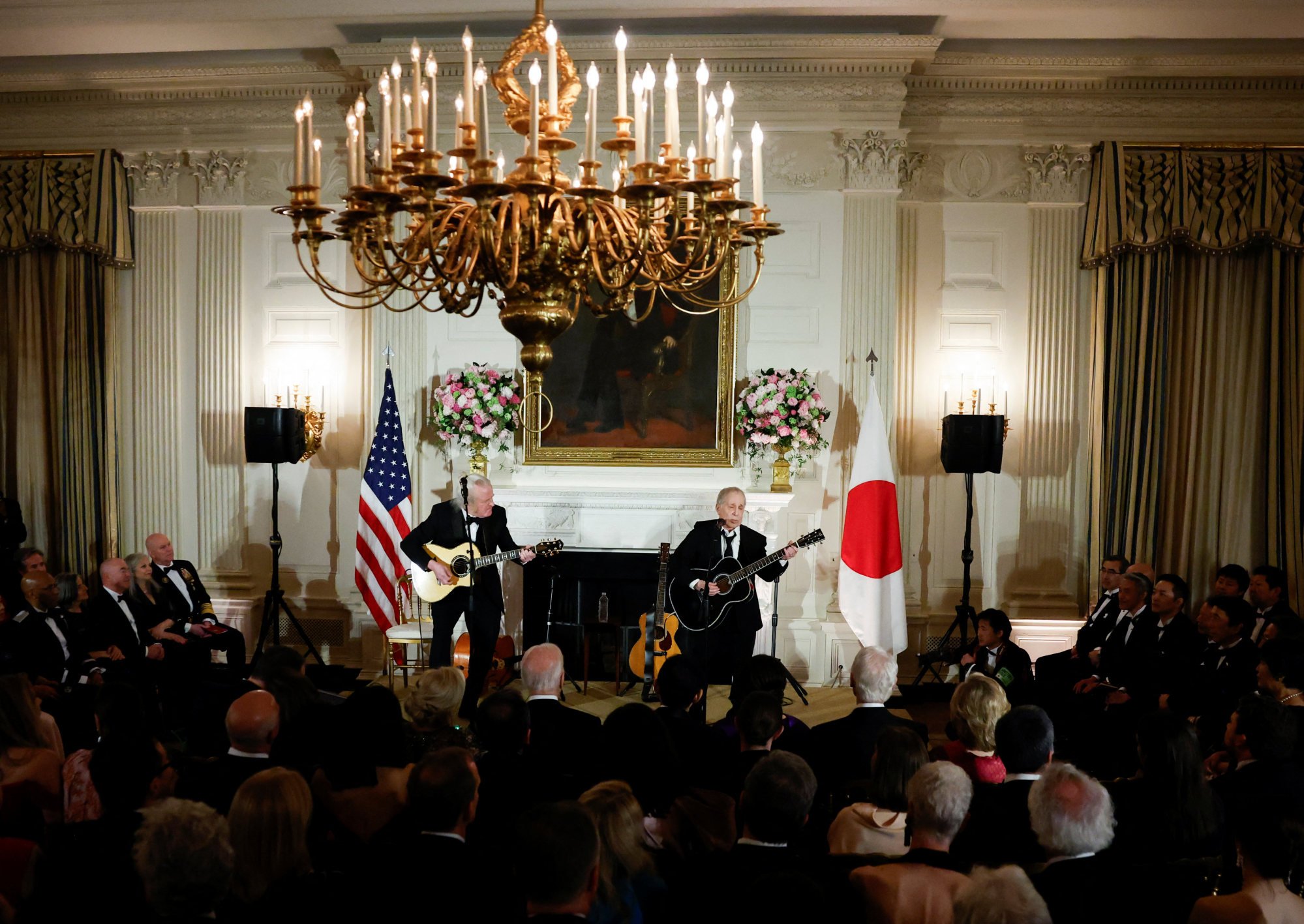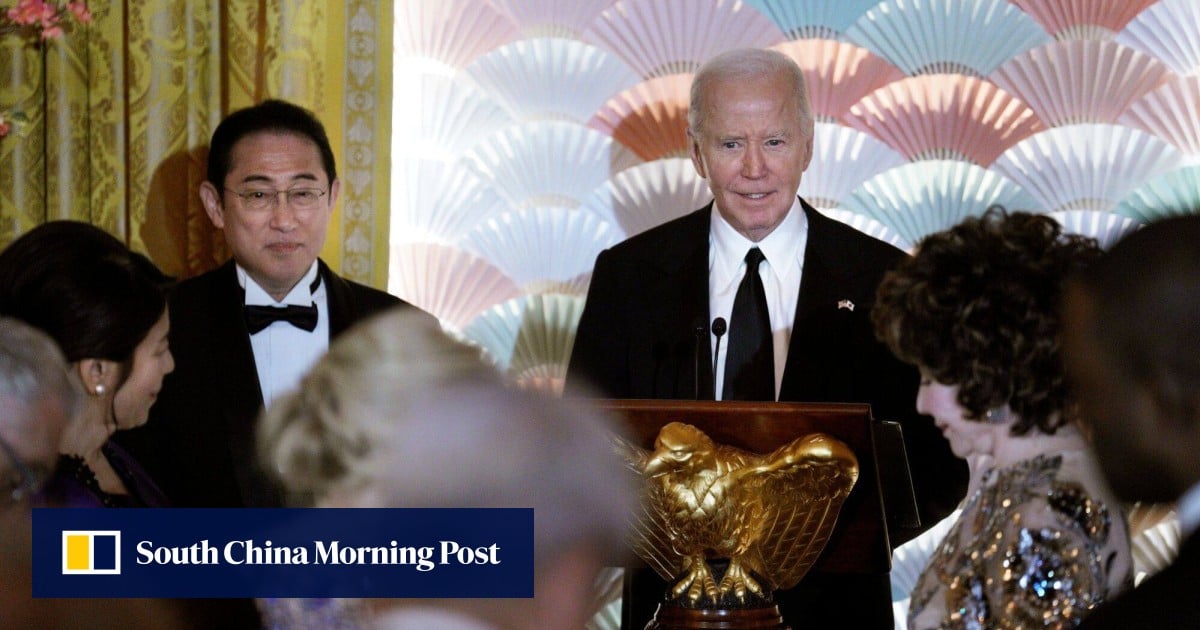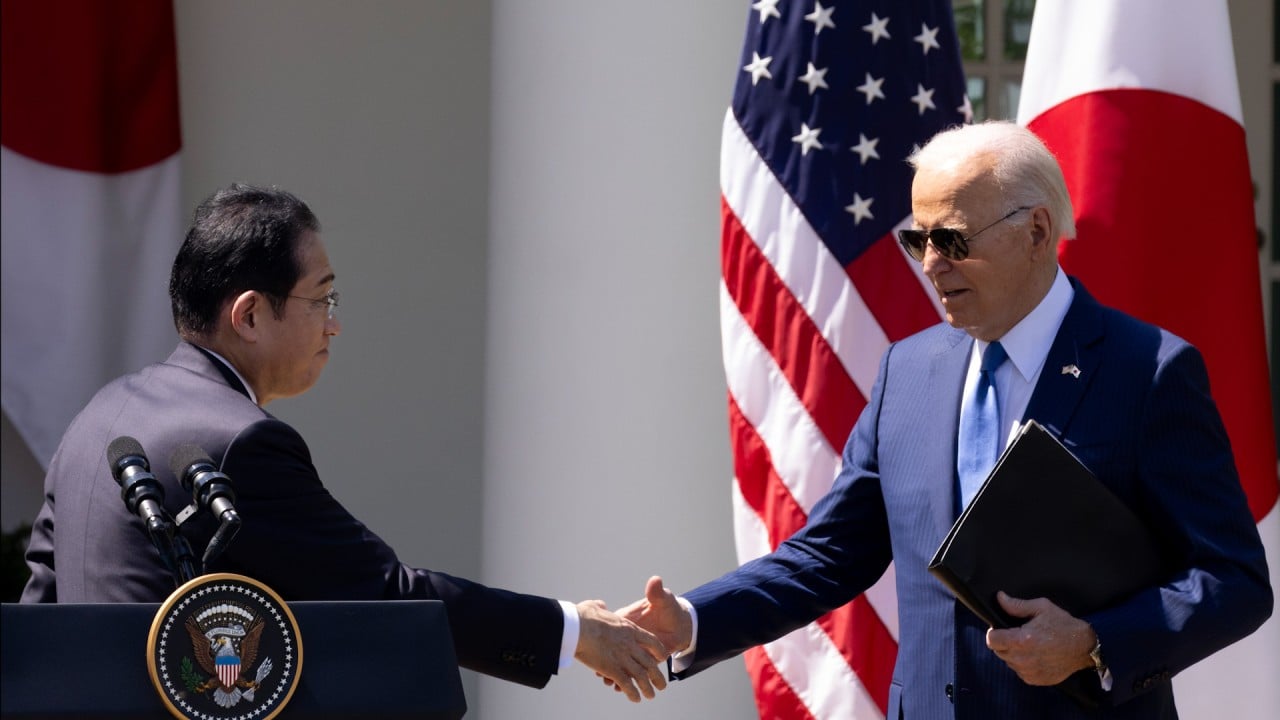“They use the summit as an action-forcing event to get good results that can’t be done in the average course of business so that, when the leaders meet, there is something that is impressive to the world community and extremely useful for the bilateral relationship.”
Kishida is the fifth leader to be granted such fulsome honours by Biden’s White House, but there is a complexity in this nuanced protocol world. Japan’s head of state is the emperor, so Kishida’s trip is characterised as an “official visit with a state dinner” – as are visits by Britain’s and Australia’s prime minister – rather than a full-on “state visit”.
That meant that Kishida received a 19-gun salute afforded official visitors rather than the 21-gun salute given to a head of state.
Before this week’s summits, Biden hosted three state visits – with the leaders of India, South Korea and France – and one official visit with the leader of Australia. Kishida is thus the fifth foreign leader Biden has hosted as a state guest with four of the five from the Quad, underscoring his emphasis on Indo-Pacific security partnerships.
The Quad, a grouping comprising Japan, India, the US and Australia, is one of several under a latticework of partnerships the Biden administration has initiated or reinvigorated in order to counter a more economically and militarily aggressive China in the Indo-Pacific.
Stars of J-pop, Hollywood and tech attend Kishida state dinner at White House
Stars of J-pop, Hollywood and tech attend Kishida state dinner at White House
For Kishida, who is struggling in the polls as his ruling party battles various corruption scandals, the pomp, pageantry and optics of his visit with the US president and Congress provide an important vote of support back home, particularly given the importance of ceremony and recognition in Japanese culture.
When he was president, Barack Obama reportedly disliked the trappings of official visits, while Donald Trump relished the pomp and spectacle.
There are all extensive rules, terminology and protocol surrounding these visits, and they are almost always reciprocated.
America’s first state dinner was in 1874 when King David Kalakaua of the then kingdom of Hawaii was hosted and, according to White House historians, brought along food testers to sample the 20-course dinner, presumably worried about being poisoned.
State and official visits have sometimes courted controversy.

In 1995, a state visit was floated for Jiang, but the administration of president Bill Clinton nixed the idea, wary of criticism from Congress the year before his successful re-election bid. Clinton instead offered Jiang a less formal White House meeting. But China, reportedly miffed, had its foreign ministry decline. Jiang instead met with Clinton at the UN General Assembly in New York later that year.
Clinton subsequently invited Jiang for a state visit in 1997, after his re-election, the first US hosting of a Chinese head of state in a dozen years, which Moon as China desk officer at the State Department helped organise.
The Jiang visit and that of Kishida have a very different tone in part because in the 1990s China was trying to recover from global criticism after the bloody Tiananmen Square crackdown, while Japan is being feted as a major global partner, including its role in countering China, Moon said.
This also makes the US assembling of deliverables – essentially a process overseen by the National Security Council to pressure and cajole agencies throughout the administration to create or fast-forward projects in the works – different, with the exercise easier with an ally than an adversary.
US wants to ‘flip script’ on China, isolate it with allies’ help: ambassador
US wants to ‘flip script’ on China, isolate it with allies’ help: ambassador
In planning for China’s 1997 state visit, Beijing was intent that the script for Deng Xiaoping’s historic 1979 visit be followed to the letter, Moon said.
“The Chinese went through all of the files that they had from the past and wanted to be sure that every protocol courtesy given to Deng Xiaoping was given to Jiang, down to the fact that a State Department protocol officer escorted Deng’s delegation around the country,” said Moon. “And even though the State Department no longer did that as a matter of practice, the Chinese insisted. And so the State Department sent someone.”
Marcos is also being celebrated with an official visit on Thursday, but he will have less time with Biden, will not have a state dinner, a gun salute, and his time will be shared with Kishida as the three leaders convene to spotlight their trilateral arrangement. The US and Japan are also taking a more pronounced leadership role, pledging economic and military support, training and aid for Manila as it comes under growing pressure from China in its surrounding waters.

China claims most of the disputed South China Sea as part of its sovereign territory.
The world of state and official visits is rife with distinctions, nomenclature and established practices. In addition to state visits and official visits, there are official working visits, working visits and private visits. Some require an exchange of official gifts; there are distinctions involving White House white tie dinners and black tie dinners; most involve a red carpet ceremony on arrival but not all merit a White House arrival ceremony.
Japanese PM Kishida backs ‘indispensable’ global role of US, citing threat by China
Japanese PM Kishida backs ‘indispensable’ global role of US, citing threat by China
Rules abound. Under US diplomatic policy, for instance, the president can host only one state visit from a particular nation in a four-year period, although a way around this for executive presidents involves classifying a subsequent arrival as an “official visit”.
On other fronts, state visits to the US are always reciprocated at a later date by a president’s state visit to the other country’s capital. And cancelling an invitation to a state or official visit is often seen as an international rebuke of the US. In one example, then Brazilian president Dilma Rousseff cancelled a planned state visit in 2013 after revelations that the US National Security Agency had spied on her and other Brazilian government officials.
Planners confer in advance within their own government and their counterparts abroad, hoping to avoid gaffes – as when a White House announcer in 2006 mixed up Taiwan and China when introducing China’s national anthem.
“There’s an offence to it to ensure all dignity possible is accorded, and a defence to ensure that no slights either intentional or unintentional occur,” said Moon. “The purpose is to ensure that every courtesy possible is provided and … that that kind of stuff doesn’t happen.”


